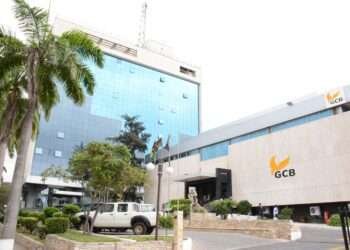Ghana’s domestic debt market is showing renewed signs of stress as investor participation in Treasury bill (T-bill) auctions continues to decline despite rising yields.
The government’s recent auction, held by the Bank of Ghana (BoG), saw another round of undersubscription, a clear indication that investors are increasingly shunning short-term government securities in search of better returns elsewhere.
According to the BoG auction results, the government raised GH¢4.619 billion from a target of GH¢5.329 billion, representing a shortfall of about 13%. Although all submitted bids were accepted, the undersubscription points to persistent investor caution in the face of evolving market conditions and concerns about real returns.
Market analysts believe that while T-bill yields have seen marginal increases over recent weeks, they still look less attractive compared to alternative instruments in the financial market, particularly fixed deposits, mutual funds, and certain corporate bonds that offer relatively higher returns.
Government Accepts All Bids to Maintain Liquidity
Despite the undersubscription, the government accepted all GH¢4.619 billion in bids, suggesting a continued reliance on the short-term debt market to meet its financing needs. The 91-day bill once again dominated the auction, attracting approximately GH¢3.74 billion — representing more than 81% of total bids.
The 182-day bill followed with bids worth about GH¢567 million, while the 364-day bill recorded bids totaling GH¢309.3 million. This heavy concentration in short-term securities highlights investors’ preference for shorter maturities amid prevailing uncertainties surrounding Ghana’s fiscal trajectory and interest rate outlook.
Economic observers have noted that the government’s dependency on the T-bill market has grown significantly over the past year, especially as access to long-term financing and external borrowing remains constrained. Accepting all bids, even in an undersubscribed auction, allows the government to sustain liquidity and manage upcoming debt maturities.
Yields Continue to Edge Up Across the Curve
Despite declining demand, interest rates along the yield curve continue to inch upward. The 91-day T-bill yield increased by 14 basis points to 10.81%, up from the previous week’s rate. Similarly, the 182-day bill yield rose to 12.49% from 12.30%, while the 364-day bill yield increased by eight basis points to settle at 12.95%.
The upward trend in yields reflects ongoing market adjustments to balance government borrowing needs with investor expectations for higher compensation in light of economic risks. However, analysts caution that the pace of yield increases has been modest and may not yet be sufficient to re-ignite strong investor interest.
Unless the rates rise significantly or inflation eases further, we may continue to see weak subscription levels in the near term.
Investor Confidence Under Strain
Investor sentiment in the fixed-income market has been fragile following the impact of Ghana’s domestic debt exchange programme (DDEP), which restructured a large portion of local bonds. Many institutional and retail investors remain cautious, preferring instruments with shorter tenors to minimize exposure to potential risks.
Additionally, with inflation still above policy comfort levels, the real value of returns on T-bills remains relatively unattractive. This has prompted investors to explore other short-term instruments, such as fixed deposits and money market mutual funds, which often yield better returns with similar or lower levels of risk.
“The T-bill market needs to offer competitive real returns to attract back investors,” another market analyst observed. “Until that happens, the government will have to continue accepting undersubscriptions or pay higher yields to entice participation.”
With the government’s fiscal space constrained, a steep increase in T-bill rates could elevate the cost of debt servicing, which already constitutes a significant share of public expenditure.
Analysts note that the BoG and the Ministry are treading carefully to avoid triggering a sharp spike in yields that could worsen fiscal vulnerabilities. However, with investor demand weakening, maintaining market stability while ensuring sufficient funding for budgetary operations may become increasingly challenging.
The situation underscores the importance of deepening Ghana’s capital market to diversify financing sources beyond short-term instruments. Efforts to revive confidence in long-term government bonds, attract foreign investors, and enhance market transparency are seen as crucial to restoring sustainable financing conditions.
Outlook
In the intervening time, market watchers predict that yields may continue to rise moderately if investor appetite remains subdued. The government may also have to recalibrate its short-term borrowing strategy to balance between cost efficiency and investor participation.
Economic recovery, stable inflation, and improved macroeconomic indicators could help restore confidence in the T-bill market. Until then, analysts say, the government’s dependence on short-term borrowing may keep pressure on interest rates and liquidity conditions.
In the meantime, the government’s struggle to meet T-bill targets despite soaring yields signals that investors are growing more discerning, demanding both competitive returns and policy credibility.
READ ALSO:MTN Ghana Strengthens Market Dominance with GH¢5.5bn Profit and Record Subscriber Growth























